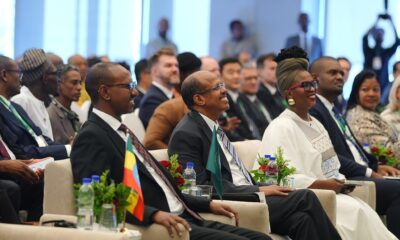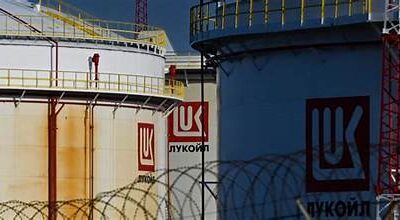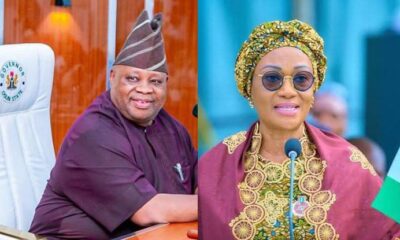Global Issues
Africa’s Climate Conundrum: A Call for Fairness in the Paris Agreement -By David Jeb
African presidents must unite to demand fairness, equity, and respect in global climate negotiations. This is not about rejecting climate action—it is about ensuring that the path to a greener future does not trample on Africa’s right to develop.

As the world continues its relentless march toward a greener future, Africa finds itself at a perplexing crossroads. With its vast forests, abundant natural resources, and relatively low carbon emissions, Africa remains a pivotal player in the fight against climate change. Yet, the continent is paying a disproportionate price for a problem it did not create.
The Paris Agreement, hailed as a monumental global effort to curb rising temperatures, has imposed limitations on African economies that have stifled growth and opportunity. While developed nations, with their centuries of unchecked industrialization, bear the lion’s share of responsibility for the climate crisis, Africa—still struggling to industrialize—has been forced into compliance that comes at the expense of its survival.
Since signing the Paris Agreement, African nations have faced immense challenges in adhering to emission reduction targets. The compliance costs are staggering, diverting billions of dollars that could otherwise fuel economic growth, infrastructure development, and poverty alleviation. The African Development Bank estimates that climate change costs the continent 5% to 15% of GDP annually, with losses projected to escalate to $50 billion annually by 2030.
Moreover, African countries are sacrificing the economic benefits of fossil fuel exploration and industrialization to meet global climate goals. Nations like Nigeria, Angola, and South Africa, rich in fossil fuel resources, are being pressured to curtail production despite their heavy dependence on these revenues for economic stability.
The irony is glaring: Africa accounts for less than 4% of global emissions but is disproportionately bearing the economic and social brunt of mitigation efforts.
It is time for African leaders to collectively challenge the status quo. The continent must demand a reset of its obligations under the Paris Agreement, one that reflects its unique position in the global climate equation.
Africa’s emissions are negligible compared to the industrialized West and China. The continent deserves more lenient emissions targets and the flexibility to retain some fossil fuel activities. Without industrialization, Africa cannot achieve the economic growth needed to lift millions out of poverty.
Africa is home to some of the world’s largest carbon sinks, including the Congo Basin. These natural assets are helping to neutralize global emissions, yet the continent receives little in return. Developed nations must significantly increase climate financing to reward Africa’s contribution and offset its opportunity costs.
While renewable energy is the future, Africa must have the freedom to pursue a dual energy pathway. This means maintaining limited fossil fuel use while gradually integrating renewable energy systems. Without this balance, energy poverty—already affecting 600 million Africans—will only worsen. This also spills over with political disruptions and discrediting as in the case with South Africa, Zimbabwe, Zambia and others.
The U.S. President Donald Trump’s decision to withdraw from the Paris Agreement sent shockwaves through global climate negotiations. His rationale? The agreement was unfair to the American economy. This precedent should embolden African leaders to reassess their own position. If the world’s largest economy can step back to protect its interests, why can’t Africa negotiate better terms to safeguard its future?
Africa is helping solve a problem it did not create, but at what cost? The survival of the continent’s economies and people cannot be collateral damage in the global fight against climate change.
African presidents must unite to demand fairness, equity, and respect in global climate negotiations. This is not about rejecting climate action—it is about ensuring that the path to a greener future does not trample on Africa’s right to develop.
The time has come for Africa to assert its position, to say: “We will lead in protecting our planet, but not at the expense of our people.” Let this be the moment when the continent reclaims its voice, not as a victim of global agendas but as a powerful advocate for balanced and sustainable solutions.
The world is watching, and history will judge. Will Africa’s leaders rise to the occasion?
David Jeb Kuteesa is the Chairman of Quantum Vert LLC, a Mauritius-based company driving innovation and sustainable growth across diverse sectors. As the Head of Regional Leadership for Central Africa and the Indian Ocean Islands under the Global Opportunities Committee (GOC) of the Atlanta Black Chambers, he fosters economic empowerment and global collaboration. He is also the author of The Humanity of Business and The Thumb Resource, thought-provoking works that explore the intersection of purpose-driven leadership and the transformative power of networks in achieving business success.










